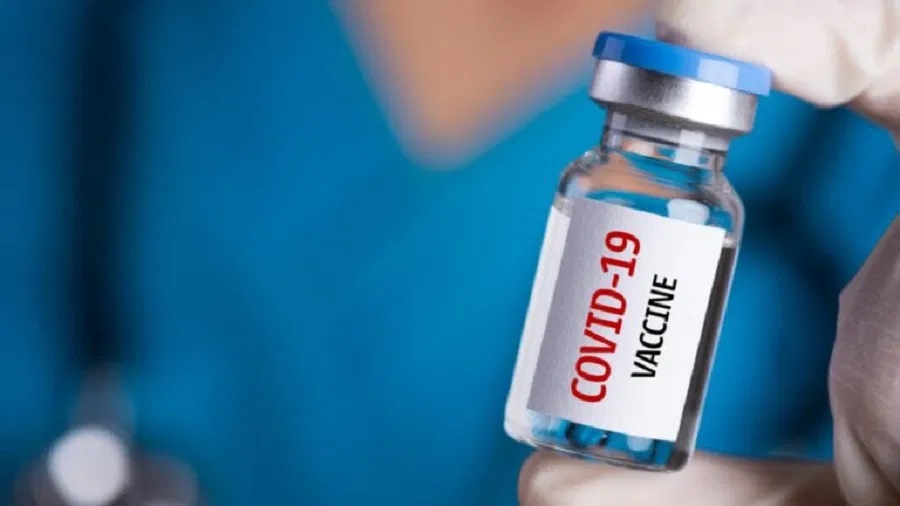It has been nearly nine months since the COVID-19 pandemic took the world by storm, and several of the season-dependent ‘theories’ such as the virus not being able to survive through the summer months have naturally been laid to rest.
We are in the hot summer months, and cases in Africa have officially crossed the one million mark, while countries like the United States of America and others in Europe continue to experience a surge in cases.
There would appear to be one source of hope on the minds of many – a viable, safe, and effective vaccine.
Earlier on in the pandemic, several countries rallied behind pharmaceutical companies to begin intensive trials for viable vaccines against the new coronavirus. Billions of dollars were marshalled and invested by governments, corporate organisations and academia towards research and development across continents, and within months, clinical trials had commenced, even involving a few African countries such as South Africa and Egypt.
With over 23 million cases confirmed worldwide since the beginning of the pandemic, and more than eight hundred thousand dead, a viable vaccine would be a game-changer for what is unarguably the world’s worst public health crisis in over a century.
Fears are centred around the return of children to schools and full reopening of economies, and a return to normal daily life may not be possible until populations have built up sufficient antibodies to fend off the virus.
Re-infections and inconsistencies in antibody levels amongst previously recovered COVID-19 cases have been reported, and so intensifying vaccine development is a likely route towards post-COVID-19 recovery for global societies and economies. Whereas this process usually takes years to completion, various individuals and national governments are striving to shorten that timeframe.
Interestingly, the United States government refers to its vaccine initiative as Operation Warp Speed, committing over U$D10 billion to vaccine development and aiming to develop and deliver 300 million doses of a safe, effective vaccine against the new coronavirus by January 2021.
Recently, Morocco’s Ministry of Health signed an agreement with the China National Biotec Group (CNBG) to enable the country partake in COVID-19 vaccine clinical trials.
With hundreds of coronavirus vaccines in development, and early successes announced by University of Oxford with Astra Zeneca, Imperial College, Pfizer, BioNTech and Moderna Therapeutics, the burning challenge is, given what would be an astronomical demand for a vaccine against COVID-19, how African countries, especially those not actively involved in the vaccine development process will gain access to sufficient numbers of vaccines to ensure the protection of their populations against COVID-19.
While the reports are quite encouraging, with the World Health Organization (WHO) hinting at the likelihood of vaccine deployment by mid-2021, several scientists have cautioned against overt enthusiasm just in case of the hopefully unlikely event that vaccines are not available as quickly as anticipated.
However, the race to a vaccine and the desperate need for countries to guarantee sufficient doses for their citizens has fuelled growing concerns about the fate of African countries who may be left out of the COVID-19 vaccine train as we barrel towards the inevitable tug of war to secure vaccines for nations and nationals.
President Paul Kagame of Rwanda recently called on the African Union to appoint an African Head of State who would commence engagements with foreign countries and organisations to ensure that Africa has access to the vaccine once it becomes available.
Additionally, the WHO Director-General has expressed grave concern over what has now been termed “vaccine nationalism” – a tendency for countries to keep the developed vaccines to themselves, and has started warning governments and corporations to intentionally share vaccines developed in their countries with others.
Gavi, the Vaccine Alliance in recognition of the fact that many of the poorest and emerging economies will have challenges accessing vaccines when they come to market, has set up the COVAX facility – an innovative financing mechanism that will enable such countries gain access to COVID-19 vaccines.
The alliance, in collaboration with the Serum Institute of India (SII) and the Bill & Melinda Gates Foundation plans to accelerate the manufacturing and delivery of up to 100 million doses of COVID-19 vaccines for low- and middle-income countries in 2021.
Regardless of the calls by African Heads of State, World Health Organization and steps being taken to mitigate vaccine nationalism by organisations such as Gavi, the passive position which many countries on the continent find themselves at the moment is certainly not a very pleasant or preferred place to be for several reasons.
First, over the past several decades, many African countries have neglected to develop sufficient capacity in research and development that would have served the continent well during this pandemic.
This was highlighted early in the pandemic when many countries on the continent were disadvantaged due to lower financial capacity and nearly edged out completely during the global demand for personal protective equipment (PPE) and ventilators.
This effectively communicated the urgent need for African countries to step up their game and develop their manufacturing sectors and reduce the near-total reliance on imported life-saving commodities.
The race to the development of a vaccine is a similar scenario, and so governments on the continent need to start ensuring that a conducive environment with improved capacity and capability for research and development are actively, deliberately, and urgently developed.
With over 1.2 billion of the world’s population domiciled in Africa, there is too much to lose and little or nothing to gain from maintaining what appears to be the current passive and dependent status in global research and development.
Second, Oxford University and Imperial College London are just two of the academic institutions based in the Global North that have been at the forefront of the development of a vaccine against COVID-19.
Typically, research and innovation in academic settings are driven primarily by funding through grants which provide the necessary stimulus to drive such work.
Majority of these grants are given by organisations who assess institutions and researchers based on several criteria to determine their eligibility for such grants.
Critically, the grants-making bodies that drive the global health research agenda are foreign funders such as the US National Institute of Health (NIH), Bill & Melinda Gates Foundation, Wellcome Trust, World Bank, WHO, USAID, Global Fund, US Centers for Disease Control and Prevention (CDC), and foreign universities; and the leadership of these organisations are mostly from the Global North.
Training and building capacity for research must then essentially become an area of focus for African governments and institutions and to do this effectively would require deliberate collaborations from both the public and private sector.
Three years ago, the Afe Babalola University in Nigeria received a U$D40 million facility from the African Development Bank (AfDB) which enabled the institution build and equip a multi-specialty teaching hospital that is today developing highly technical specialist capacity in fields such as cardiology and kidney surgery.
Multi-sectoral partnerships that have strengthened the capacity and research output of institutions such as Africa CDC and Nigeria CDC (NCDC), University of Global Health Equity in Rwanda, and the Africa Health Research Institute in South Africa have enormous prospects for “decolonising” global health research.
As Nigeria and several other African governments mark sixty years and more of “independence,” perhaps it is time to deeply contemplate and consider what that independence really means and should involve.
A situation where African countries are still at the mercy of foreign funders for life-saving resources such as the COVID-19 vaccine and need to cry out when distribution of the vaccine commences is a difficult and very undesirable position to be.
Vaccine phobia and fears about the implausible possibility of using the COVID-19 vaccine to monitor and control people, 5G system of communication conspiracy theories and even the fables about the COVID-19 pandemic being a hoax have peppered the discourse around the controversial Infectious Disease Control Bill at the National Assembly (NASS) in Nigeria.
Perhaps what Nigerians were really most afraid of were the consequences of not being in the driving seat of such critical research outputs that could potentially affect the lives of millions of Nigerians and over a billion Africans by extension – for better or worse.
Developing capacity that consistently delivers solid output is at the heart of building trust on the continent. There is an African proverb which says, “Tomorrow belongs to the people who prepare for it today”.
If Africa wishes to assure the future of generations to come, it must invest in building its institutions and capacity. Today, it may be “vaccine nationalism”, but what other issue would threaten the lives of Africans tomorrow? As a continent, we must consciously, aggressively, and determinedly prepare today for the issues of tomorrow.
Dr Adaeze Oreh is a family physician in Abuja and Head of Planning, Research and Statistics for Nigeria’s National Blood Transfusion Service. She is also a Senior Fellow for Global Health with the Aspen Institute in Washington D.C.

 Join Daily Trust WhatsApp Community For Quick Access To News and Happenings Around You.
Join Daily Trust WhatsApp Community For Quick Access To News and Happenings Around You.


